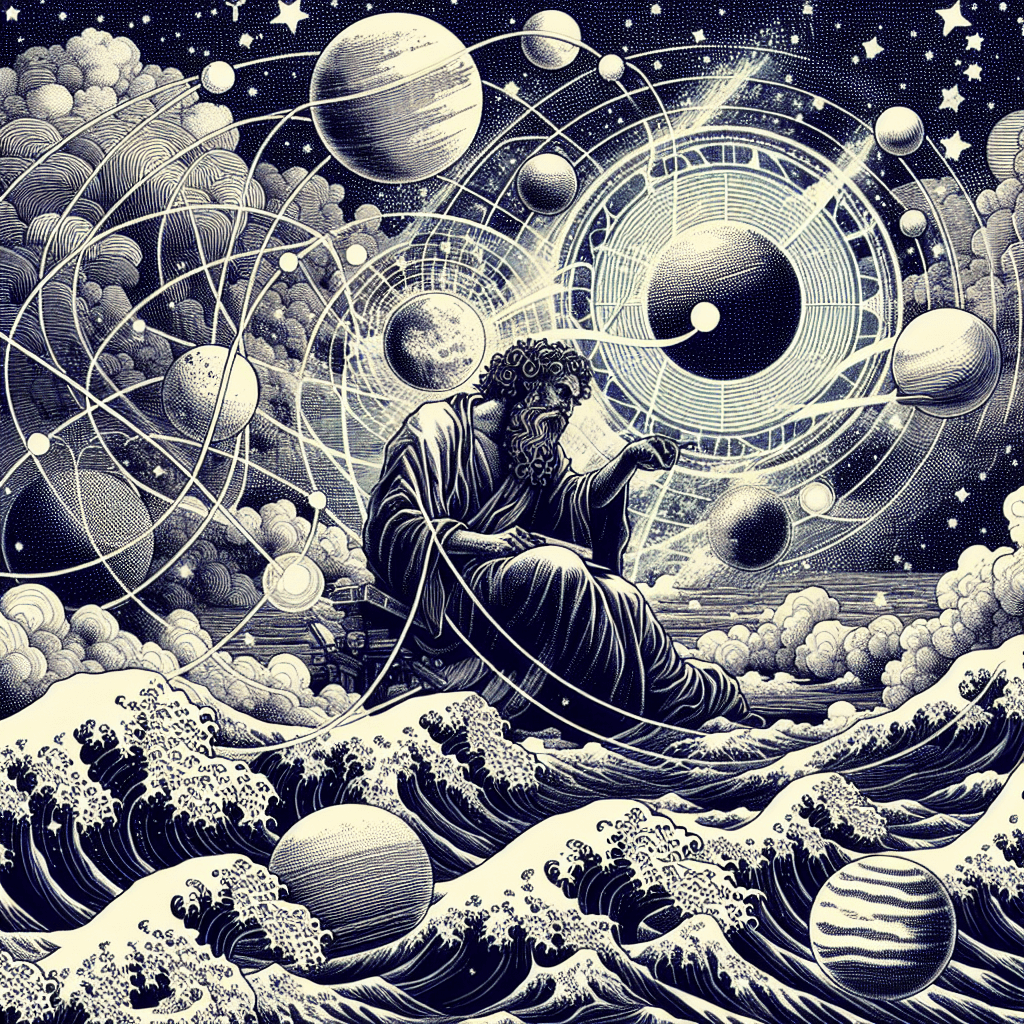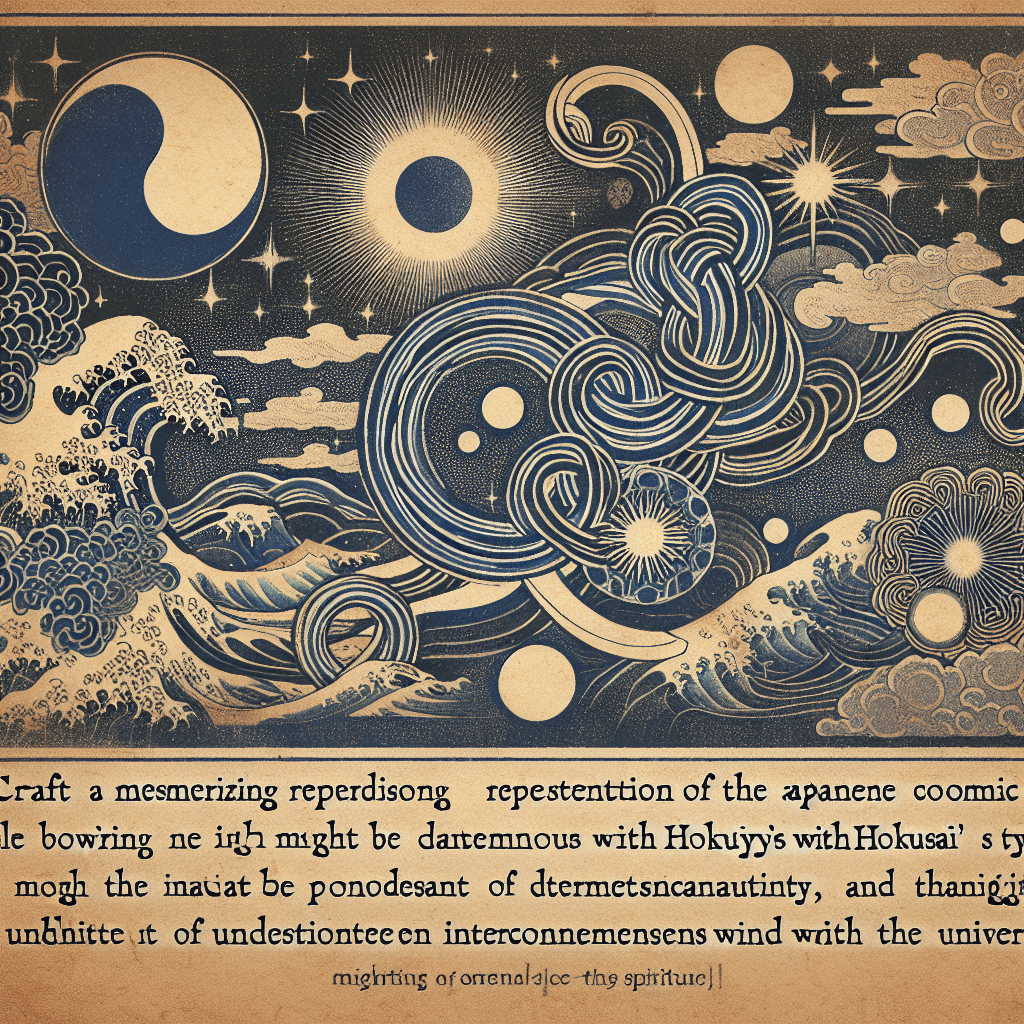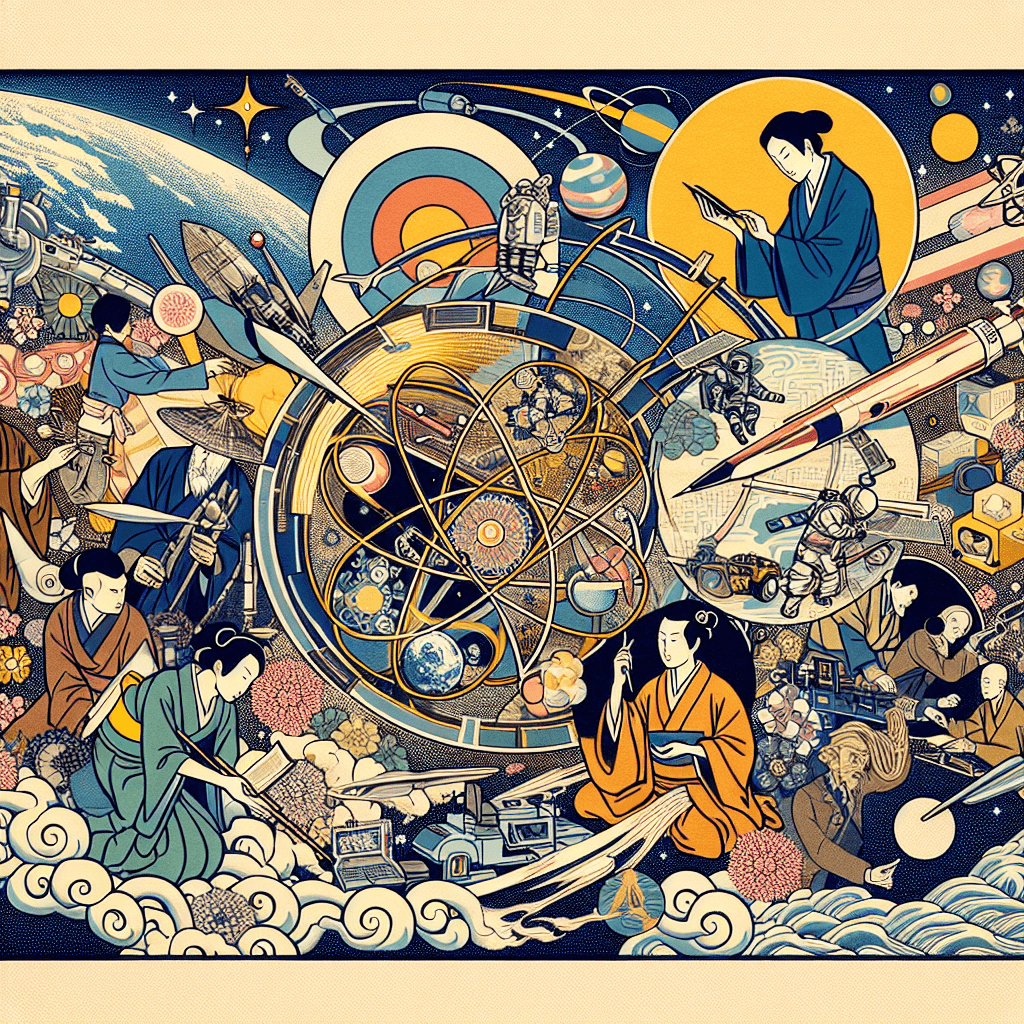Pythagoras: The Harmony of the Spheres
syndu | Aug. 29, 2024, 11:28 p.m.

Pythagoras: The Harmony of the Spheres
Introduction
Pythagoras, a name synonymous with the Pythagorean theorem, is often celebrated for his contributions to mathematics. However, his influence extends far beyond the realm of geometry. Pythagoras was also a mystic who believed in the profound interconnectedness of the cosmos. His vision of the universe as a harmonious system governed by mathematical ratios and harmonies has inspired thinkers for centuries. This blog post explores Pythagoras' contributions to mathematics and mysticism and how his vision can inform modern space navigation.
Pythagorean Theorem and Its Applications
The Pythagorean Theorem
The Pythagorean theorem is one of the most well-known mathematical principles, stating that in a right-angled triangle, the square of the hypotenuse is equal to the sum of the squares of the other two sides. This theorem has numerous applications in various fields, including architecture, engineering, and astronomy.
Applications in Space Navigation
In space navigation, the Pythagorean theorem is used to calculate distances and trajectories. For instance, it helps in determining the shortest path between two points in space, which is crucial for efficient space travel. The theorem also plays a role in the alignment of spacecraft and the calculation of orbital paths.
The Concept of the Harmony of the Spheres
Harmony in the Cosmos
Pythagoras believed that the cosmos was governed by mathematical ratios and harmonies, a concept known as the "Harmony of the Spheres." He posited that the planets and stars moved according to mathematical equations, producing a symphony of celestial music that, while inaudible to the human ear, reflected the order and beauty of the universe.
Mystical Insights
This mystical vision of the cosmos as a harmonious system has profound implications for our understanding of the universe. It suggests that there is an underlying order and interconnectedness to all things, a concept that resonates with both scientific and spiritual perspectives.
Integrating Mathematical Precision with Mystical Insight
Mathematical Precision
Pythagoras' mathematical discoveries laid the groundwork for many scientific advancements. His emphasis on mathematical precision continues to be a cornerstone of scientific inquiry, particularly in fields like physics and astronomy.
Mystical Insight
Pythagoras' mystical insights offer a complementary perspective, encouraging us to see the universe not just as a collection of physical objects but as a harmonious whole. This holistic view can inspire innovative approaches to space exploration, integrating scientific rigor with a sense of wonder and interconnectedness.
By integrating mathematical precision with mystical insight, we can explore the universe with both rigor and reverence, pushing the boundaries of human knowledge and understanding.
Conclusion
Pythagoras' contributions to mathematics and mysticism provide a rich tapestry of insights that continue to inspire and inform. His vision of the cosmos as a harmonious system governed by mathematical principles offers valuable lessons for modern space navigation. By integrating mathematical precision with mystical insight, we can explore the universe with both rigor and reverence, pushing the boundaries of human knowledge and understanding.
SEO Optimization
Keyword Research
- Primary Keywords: Pythagoras, Harmony of the Spheres, Pythagorean theorem, space navigation, mathematical precision, mystical insight.
- Secondary Keywords: Pythagoras' contributions, mathematical applications, celestial harmony, interconnectedness, space exploration.
Meta Description
"Explore Pythagoras' contributions to mathematics and mysticism. Discover how his vision of the cosmos as a harmonious system can inform modern space navigation."
Headers
- H1: Pythagoras: The Harmony of the Spheres
- H2: Introduction
- H2: Pythagorean Theorem and Its Applications
- H3: The Pythagorean Theorem
- H3: Applications in Space Navigation
- H2: The Concept of the Harmony of the Spheres
- H3: Harmony in the Cosmos
- H3: Mystical Insights
- H2: Integrating Mathematical Precision with Mystical Insight
- H3: Mathematical Precision
- H3: Mystical Insight
- H2: Conclusion
Alt Text for Images
- Image 1: "A depiction of Pythagoras teaching his students about the harmony of the spheres."
- Image 2: "A geometric representation of the Pythagorean theorem."
- Image 3: "An artistic illustration of the cosmos as a harmonious system."


